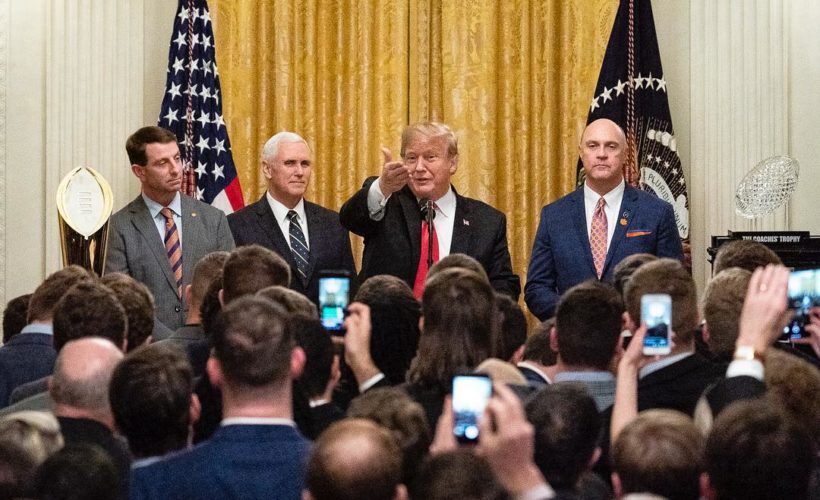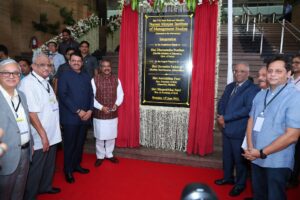
United States President Donald Trump has said that he would like to finish the preferential trade status granted to India and Turkey. He also stated that New Delhi has failed to assure America of equitable and reasonable access to its markets, a statement that may severe bilateral trade ties.
Trump has agreed to reduce US trade deficits and has repeatedly called out India for its high tariffs.
At a four-day annual Conservative Political Action Conference in Maryland on Saturday, Trump called out to India for its high tariffs and threatened to impose a reciprocal tax to match the heavy duties that New Delhi imposes on goods imported from the United States.
Trump said that he would be taking this step because, after intensive engagement between the United States and the government of India. India has not assured the United States that it will provide equitable and reasonable access to the markets of India said Trump in the letter to congressional leaders on Monday.
In the letter which was also given to the press, Trump said that he would continue to gauge whether the government of India is providing equal and reasonable access to its markets, in accordance with the Generalized System of Preferences eligibility criteria.
Under the United States GSP programme, certain products can enter the US duty-free if the beneficiary developing countries meet the eligibility criteria established by Congress.
The GSP criteria include ackowlegding awards in favour of US citizens or corporations, combating child labour, respecting internationally recognised worker rights, providing adequate and effective intellectual property protection and providing the US with equitable and reasonable market access.
Countries can also be graduated from the GSP programme, depending on factors related to economic development.
In a separate letter, Trump also informed the Congress of his intent to terminate the GSP beneficiary designation of Turkey.
He said it was wholly because the economy of Turkey had improved a lot in the last four-and-a-half decades.
Trump stated that in the four-and-a-half decades since Turkey’s designation as a GSP beneficiary developing country, Turkey’s economy has improved and diversified.
He argued that increases in Gross National Income per capita, declining poverty rates and export diversification by trading partner and by sector were all evidence of Turkey’s increased level of economic development. In addition, Turkey had graduated from other developed countries’ GSP programs due to an increase in its economic development or through reciprocal arrangements.
Trump’s letter to Pelosi could be viewed as a major setback to India-US bilateral relationship, in particular in the arena of trade and economy.
In an another statement, the US Trade Representative said India’s termination from GSP followed its failure to provide the US with assurances that it would provide equitable and reasonable access to its markets in numerous sectors.
Turkey’s termination from GSP followed a finding that it was sufficiently economically developed and must no longer benefit from preferential market access to the US market, the statement said.
Farm, marine and handicraft products have been among India’s exports and will be affected by the move, Ajay Sahai, the director general of the Federation of Indian Export Organisations, told Reuters.
The preferential trade treatment brought India an annual benefit of just $190 million, Commerce Secretary Anup Wadhawan said.
Last week, India delayed until April 1 higher tariffs on some U.S. imports announced earlier as an answer to the Trump administration’s refusal to exempt it from new steel and aluminum tariffs.
However, NDIA government source says “annual benefit” to India under preferential trade treatment by United States is only $250 million a year.
They have also said that U.S. generalized system of preferences programme is “more symbolic of the strategic relationship, not in value terms.”
An Indian government source says planned withdrawal of U.S generalized system of preference for India. “Small Issues, shouldn’t make it a big obstacle for our trade,” they said.



